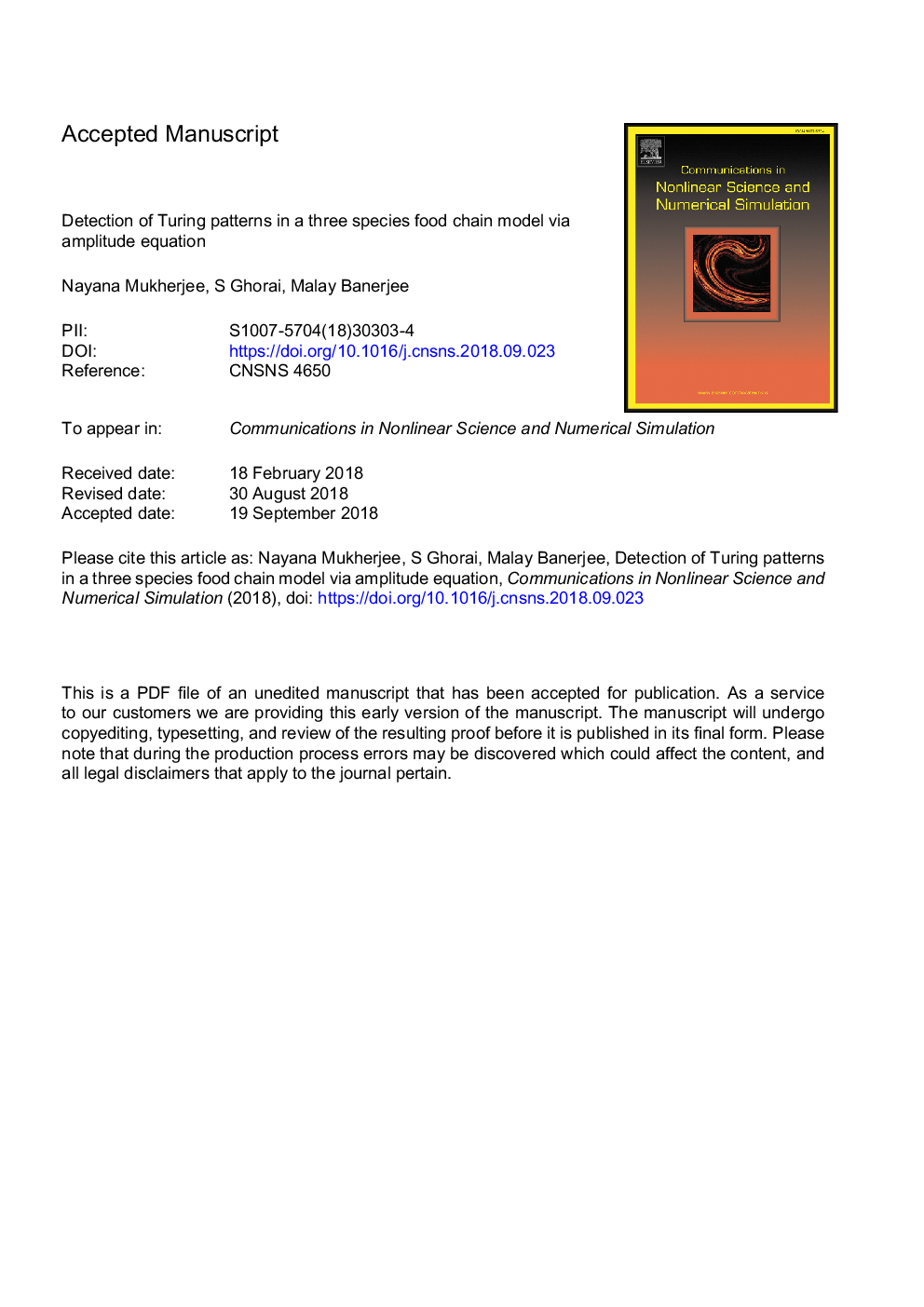| Article ID | Journal | Published Year | Pages | File Type |
|---|---|---|---|---|
| 11023554 | Communications in Nonlinear Science and Numerical Simulation | 2019 | 37 Pages |
Abstract
Study of pattern formation in three species spatio-temporal food chain models with the help of amplitude equations within Turing domain is a much less explored area compared to that of two species prey-predator models. These models play a vital role in understanding the resource-consumer interactions at the successive trophic levels of respective ecosystems. In this work, we consider the spatio-temporal extension of a three species food chain model with Holling type-II functional response to describe the grazing pattern of both the intermediate and top predator populations. Conditions for Turing instability are derived. The thresholds for emergence and stability of various Turing patterns near the Turing bifurcation boundary are obtained with the help of amplitude equations using weakly nonlinear analysis. The analytical results are further verified with the help of extensive numerical simulations for the complete nonlinear model and both the results are compared for different sets of parameter values.
Related Topics
Physical Sciences and Engineering
Engineering
Mechanical Engineering
Authors
Nayana Mukherjee, S Ghorai, Malay Banerjee,
